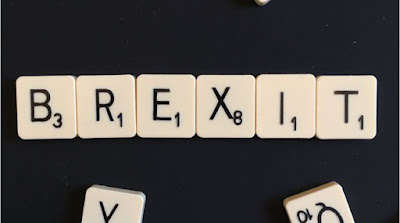
In October 2024, the African penguin became the first penguin species in the world to be listed as critically endangered by the International Union for the Conservation of Nature.
This is a sad record for Africa’s only penguin, and means it is now just one step away from extinction.
How did this happen? African penguins (Spheniscus demersus) are found only in Namibia and South Africa. Their numbers have been declining since the 1800s. At that time, they were burnt in ships’ boilers, their eggs were harvested and consumed as a delicacy, and their nests were destroyed by guano-harvesters seeking a rich source of fertiliser.
Such activities are fortunately no longer allowed. African penguins have been protected under South Africa’s Sea Birds and Seals Protection Act since 1973 (and more recently under the Marine Threatened or Protected Species Regulations since 2017).
These laws and regulations ban the capture of penguins or their eggs, and any intentional harm done to them. Fertilisers no longer use guano (penguin excrement). After egg and guano harvesting stopped, the lack of prey (small fish like sardines and anchovies) became the main issue for penguins from the early 2000s.
The impacts of climate change on the distribution and abundance of their food, and competition with industrial fisheries, have contributed to a 70% reduction in this penguin’s population between 2000 and 2024.
We are a group of scientists from universities and non-governmental organisations that have, for years, focused on solutions to save the African penguin. Today, unless the South African government takes urgent steps to protect the African penguin, it will likely become extinct in the wild by 2035. At present there are fewer than 20,000 birds left in the wild.
Penguins are like the canaries in the coal mine. They are disappearing because the ecosystem they rely on, together with many other species, including fish targeted by commercial fisheries, is in dire straits. By saving them, we protect their ecosystem and the other species that rely on it.
Penguins are also valuable to the economy, bringing in revenue from tourism.
What’s worked for the penguin so far
The destruction of African penguins’ nesting habitat over the centuries has been partly repaired by setting up artificial nests in penguin colonies. New research has found that these improve the number of penguin eggs that hatch by 16.5% compared to natural surface or bush nests which remain vulnerable to the elements.
Steps to protect the African penguins’ food supply also worked. One step was the experimental “no-take zones”, where the South African government prohibited fishing around the penguins’ breeding areas between 2008 and 2019.
The government closed commercial fishing of sardines and anchovies in a 20km radius around Robben Island on the west coast and St Croix Island in Algoa Bay for three years. During this time, commercial fishing around the neighbouring penguin colonies of Dassen Island and Bird Island was still permitted. The closure was alternated every three years until 2019 to see if it affected the penguin populations.
The results were positive. Penguins were able to catch fish with less effort and their chicks’ health and survival rates improved. The population increased by about 1% – a small increase, but very important, considering they were already endangered.
In parallel, the African Penguin Biodiversity Management Plan was published in 2013. The plan focused on managing predators, such as Cape fur seals and kelp gulls, and rescuing abandoned eggs and chicks. Thousands of individual penguins were saved and released into the wild over the years.
What has gone wrong for the penguin
Despite these efforts, the African penguin population fell faster from the mid-2010s. This was mostly due to the sudden collapse of the colony at St Croix Island, then the world’s largest African penguin colony.
This collapse coincided with the establishment of ship-to-ship bunkering activities (refuelling ships at sea rather than in ports) in Algoa Bay in 2016. While the ships were refuelling, four oil spills occurred.
Ship-to-ship bunkering also increased underwater noise pollution due to a ten-fold increase of maritime traffic in the bay.
Our previous research has revealed that African penguins are highly sensitive to underwater noise. Noise from ships or drilling equipment chases penguins away from their feeding grounds.
This also uses up the African penguins’ energy, often at a time when they have none to spare. Penguins need energy reserves before starting their annual moult, when they stay ashore for three weeks without eating to replace all their feathers. If they don’t find enough food before or after that stressful period, they die.
Can the African penguin be saved?
The experimental use of no-take zones in penguin breeding areas ended in 2019. A panel of international experts was then appointed by the South African government to review the experiment and suggest a way forward.
The panel said no-take zones should be put in place around all colonies. They recommended ways to balance the benefit to penguins against the cost to fisheries.
But the government departed from the panel’s recommendations and put in place fishing closures aimed at minimising economic losses to fisheries, and not conserving penguins. For example, they closed down fishing in some areas where penguins don’t hunt for fish.
In March 2024, the non-profit organisation BirdLife South Africa and the South African Foundation for the Conservation of Coastal Birds, represented by the Biodiversity Law Centre, asked the Pretoria high court to review and set aside the Minister of Fisheries, Forestry and Environment’s August 2023 decision on fishing closures around key African penguin breeding colonies. The case is still underway.
Meanwhile, bunkering in Algoa Bay has stopped temporarily after the South African Revenue Service detained five ships in September 2023 on allegations of breaching customs laws.
Subsequently, small increases in the St Croix Island penguin population have been seen for the first time in nearly ten years.
African penguins can bounce back when environmental conditions are good. Government and non-governmental organisations have worked hard to prevent various threats to penguins. But critical work remains to be done to protect their foraging habitat (the ocean around their colonies) from polluting activities.
Penguins also need protection from competition with industrial fisheries for fish supplies.
—————————–
This blog is by Lorien Pichegru, Adjunct professor, Nelson Mandela University; Alistair McInnes, Research Associate, Nelson Mandela University; Katrin Ludynia, Honorary Research Associate and Research Manager at SANCCOB, University of Cape Town, and Peter Barham, Professor emeritus, University of Bristol. Dr Lauren Waller of the Endangered Wildlife Trust contributed to this article.![]() This article is republished from The Conversation under a Creative Commons license. Read the original article.
This article is republished from The Conversation under a Creative Commons license. Read the original article.







